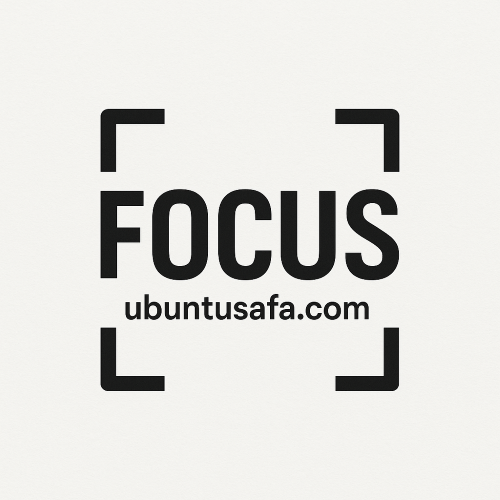Pakistan’s Trump 2.0 Charm Offensive Wins CNN Praise; Experts Call It A Temporary, Fragile Alliance

In a recent analysis published on October 18, 2025, CNN highlighted Pakistan’s remarkable transformation in its relationship with the United States under President Donald Trump.
Titled “With rare earths, deft diplomacy (and ample flattery), Pakistan shows how to deal with Trump 2.0,” the article paints a picture of Islamabad’s strategic prowess, describing it as a “masterclass” in adapting to Trump’s unconventional and transactional style of foreign policy.
Far from the tensions that marked US-Pakistan ties during the Biden administration—where Pakistan was labeled as one of the “most dangerous nations”—CNN highlights how Pakistan has emerged as a favored ally, securing economic perks, military aid, and high-level access through a blend of flattery, geopolitical leverage, and valuable resource offerings.
CNN emphasizes the role of personal endorsements and flattery in warming relations. Pakistani Prime Minister Shehbaz Sharif and Army Chief Field Marshal Asim Munir are portrayed as key architects of this shift, with frequent White House visits and public praise for Trump.
Notably, the article points out Sharif’s nomination of Trump for the Nobel Peace Prize—the second such gesture from Pakistan—following Trump’s claimed role in de-escalating a May conflict with India.
Trump, in turn, has reciprocated by calling Munir his “favorite field marshal” at the Gaza summit, a moment CNN describes as emblematic of the mutual admiration fostering these ties.
Experts quoted in the piece, such as former Pakistani ambassador Husain Haqqani, attribute this success to Pakistan’s ability to appeal to Trump’s ego: “He now likes Pakistan because Pakistan likes him and has showered him with praise.”
Analyst Shuja Nawaz adds that Trump “likes winners,” viewing Munir as a decisive leader who aligned with him during ceasefire talks. This “judicious flattery,” combined with tangible benefits, has allowed Pakistan to sidestep the criticisms Trump has leveled at other nations, positioning it as a model for dealing with his administration.
A core element of CNN’s praise centers on Pakistan’s aggressive promotion of its vast mineral reserves, estimated at $8 trillion, as a counter to China’s dominance in rare earth elements (REEs).
The article details how Munir presented Trump with a symbolic box of Pakistani minerals during a September Oval Office meeting, leading to the first shipment of enriched REEs.
These materials, crucial for technologies from smartphones to fighter jets, are hailed as Pakistan’s “biggest card” in negotiations.
CNN contrasts this with global supply chain vulnerabilities, noting China’s “near-monopoly” and its use as leverage against the US. By offering preferential access, Pakistan has not only secured smaller tariffs compared to India but also gained US support in designating the Balochistan Liberation Army as a terror group, facilitating mineral extraction amid regional insurgencies.
The military’s involvement, including a $500 million partnership, is framed positively as ensuring domestic benefits while strengthening bilateral ties.
The piece further commends Pakistan’s historical and strategic positioning, from facilitating Henry Kissinger’s 1971 trip to China to its current “pretty smooth relationship” with Iran.
Analyst Michael Kugelman is cited praising Pakistan’s geographic proximity to the Middle East and partnerships with Gulf states, suggesting it could serve as a messenger between Washington and Tehran.
This, alongside military gains like approved sales of Raytheon AMRAAM missiles, underscores CNN’s view of Pakistan as a “winner” in Trump’s reshuffled diplomacy.
Domestically, CNN notes that these diplomatic successes have “raised cheers back home,” even amid concerns over military dominance and human rights issues.
The overall narrative contrasts Pakistan’s gains with India’s setbacks, such as heavier tariffs for Russian oil purchases, implying that Islamabad’s approach offers lessons in pragmatic engagement.
CNN’s article ultimately positions Pakistan’s strategy as a blueprint for navigating Trump 2.0: deliver value, offer praise, and leverage assets like rare earths to turn potential foes into friends.
While acknowledging underlying challenges, the tone is one of admiration for Pakistan’s adaptability, suggesting that in a world of upended alliances, deft diplomacy can yield significant rewards.

Counter Narrative
The recent warming of US-Pakistan ties under Donald Trump’s second term has been hailed as a diplomatic revival, but experts warn it could prove fleeting.
Described as a “tactical romance” rather than a strategic partnership, the relationship hinges on transactional exchanges that may not last very long.
Michael Kugelman calls it a “roller coaster,” noting Pakistan’s success in pitching itself on Trump’s priorities like critical minerals and counterterrorism, but emphasizes its “transactional nature” with little substantive depth beyond exploratory talks.
He cautions that Trump’s “mercurial” style could lead to quick U-turns if interests shift, such as improved US-India ties or waning mineral enthusiasm.
Pakistan’s deep entanglement with China poses a major constraint, anchoring its strategic loyalties and limiting realignment.
Sarral Sharma, a PhD candidate at JNU, argues the engagement is “tactical and temporary,” with Pakistan’s 80% arms imports from China and the $60 billion CPEC making US deals “puny” in comparison.
Historical mistrust, stemming from the Afghanistan fallout and perceptions of duplicity, further embeds uncertainty, as the partnership remains an “inconvenient convenience” suspended in tactical convergences like intelligence sharing.
Additional risks include overpromising—Pakistan’s exaggerated mineral claims may falter—and domestic issues like military dominance and insurgencies in Balochistan, potentially turning investments into flashpoints.
- Questions and Answers
- Opinion
- Motivational and Inspiring Story
- Technology
- Live and Let live
- Focus
- Geopolitics
- Military-Arms/Equipment
- Security
- Economy
- Beasts of Nations
- Machine Tools-The “Mother Industry”
- Art
- Causes
- Crafts
- Dance
- Drinks
- Film/Movie
- Fitness
- Food
- Games
- Gardening
- Health
- Home
- Literature
- Music
- Networking
- Other
- Party
- Religion
- Shopping
- Sports
- Theater
- Health and Wellness
- News
- Culture

